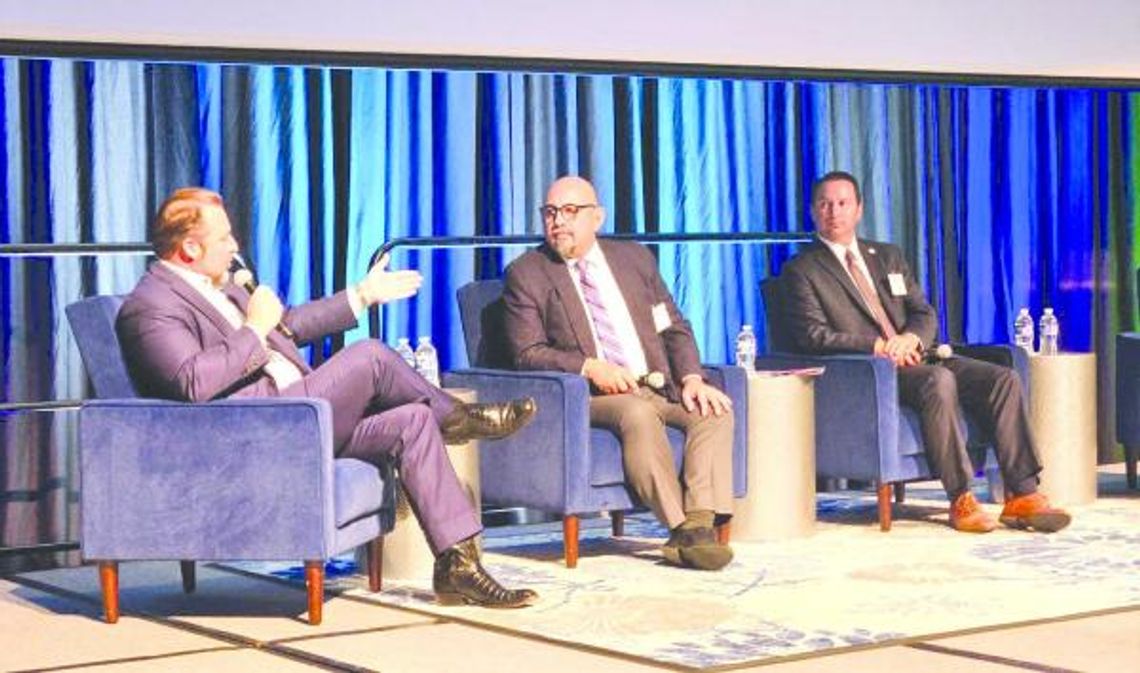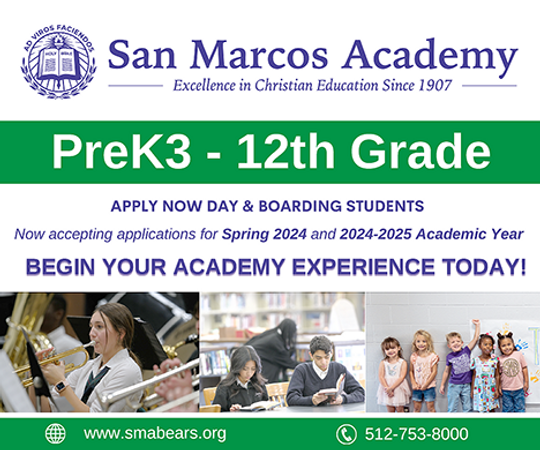Editor's Note: This is Part One in a series looking at education and workforce issues.
The annual State of Workforce & Education Summit was hosted by the San Marcos Area Chamber of Commerce and the Greater San Marcos Partnership last week, bringing both local and statewide leaders together to discuss the current conditions of education and employment.
The event was held Wednesday, Aug. 9, in San Marcos.
Texas State University President Kelly Damphousse gave a 'State of Texas State University” address, focusing much of his 20-minute speech on fostering entrepreneurship and business innovation at the school, including an announcement of plans to double the size of the university's Star Park facility. Star Park is a business incubator that supports research and helps nurture nascent businesses and entrepreneurs with new companies and technologies that spawn from that research.
He said this expansion aims to accommodate more startups, and provide opportunities for students and staff to engage with emerging enterprises, signing on to participate in the park’s approach to innovation. The president said that the ultimate goal of the university in this respect is to promote economic growth, and at the same time, keep talented individuals within the local community. He also announced that the university is seeking to add 11 new Ph.D. programs, with the goal of doubling the number of doctoral graduates at at the San Marcos campus.
Also speaking was Bryan Daniel, chairman of the Texas Workforce Commission, who told the audience about the success Texas has had creating jobs, especially in a post-COVID-19 environment..
He highlighted the state's streak of 21 consecutive months of recordbreaking employment figures, a statistic that shows the state surpassing the 15-million mark in the civilian workforce, with 14.4 million working. Texas’ unemployment rate is 4.1%, which he said is one of the lowest, and now behind prepandemic numbers, in the 3.5% range.
“So 3.4% is pretty much like full employment,” Daniel said. “4.1% tells us that there's 600,000 people in the state that are not working right now, but are telling us that they would like to have a job. They’re looking for a job, and they think they want to do that job in Texas. These numbers are good numbers.”
The heart of Daniel's message revolved around the importance of skill development and training, to help employers fill those new jobs. He revealed that approximately 56% of jobs in Texas do not require candidates to have a university degree, but Daniel said that 27% of the Texas workforce lacks any training after high school, a significant factor in the existing skills gap.
Paul Fletcher, CEO of Workforce Solutions Rural Capital Area, Tamara Atkinson, CEO of Capital Area Workforce Board and Adrian Lopez, CEO of Alamo Workforce Board, came before the audience in a panel discussion designed to shed light on how to bolster the workforce ecosystem across their organizations and the region generally. The cooperative strategy, developed over an 18-month period, aims to capitalize on the expertise of the Texas Workforce Commission and its 28 workforce boards, to foster talent development, streamline services and align education with industry demands.
In another panel discussion, education leaders engaged in a candid conversation about the challenges and opportunities in education, focusing on workforce development and the changing landscape of education. The panel included Greater San Marcos Partnership Interim President Will Conley, who is also on the Board of Trustees for Wimberley ISD, San Marcos CISD Superintendent Michael Cardona and Lockhart ISD Superintendent Mark Estrada.
The conversation transitioned to the pivotal role of education in building a strong workforce. Cardona stressed the significance of workforce development– the essential nature of workforce readiness for economic growth. Cardona emphasized that every potential investor in the community first examines the local workforce.
He also said the district's focus is on dual certification programs that prepare students for career paths. Cardona attributed the district's success to its commitment to offering students real-world experiences through partnerships with businesses and community organizations. He lauded teachers' efforts in preparing students for industry- based certifications saying that SMCISD had 269 students this year gain an industry-based certification, as compared to 58 before the pandemic hit. He also said that the new early college partnership with Coastal Bend Community College allows students to graduate high school with an associates degree. He is hopeful this program will soon have 50 to 60 graduates annually.
Cardona noted that the fluid nature of the future workforce demands flexibility in educational approaches. He stressed the importance of ensuring that students receive a solid foundation in numeracy, literacy and critical thinking skills, which are crucial, regardless of the specific career paths that emerge in the future.
.png)











